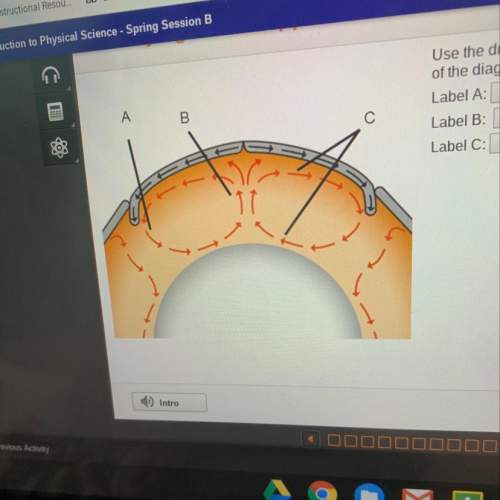Which of the following is true about cells?
A.
Both eukaryotic cells and prokaryotic cells a...

Biology, 28.10.2020 17:50 ezequielromero41
Which of the following is true about cells?
A.
Both eukaryotic cells and prokaryotic cells always contain both a true nucleus that is well-defined and organelles that are separated from the cytoplasm by membranes.
B.
Neither prokaryotic cells nor eukaryotic cells ever contain both a true nucleus that is well-defined and organelles that are separated from the cytoplasm by membranes.
C.
In general, prokaryotic cells do not have a true nucleus or membrane-bound organelles, whereas eukaryotic cells contain both a nucleus and organelles enclosed by membranes.
D.
In general, eukaryotic cells do not have a true nucleus or membrane-bound organelles, whereas prokaryotic cells contain both a nucleus and organelles enclosed by membranes.

Answers: 1
Another question on Biology

Biology, 21.06.2019 22:00
The earth consists of a variety of different organisms. despite their diversity, however, some similarities on the structural and metabolic levels may be seen. these similarities can be attributed to a. similarities among organisms in their proteins and nucleic acids. b. the ability of organisms to readily adapt to sudden environmental changes. c. similarities in organisms' habitats and niches. d. the ability of all organisms to interbreed and produce new species.
Answers: 1

Biology, 22.06.2019 09:30
Drag each description to the correct location on the image. not all descriptions will be used. describe the parts of a comet. the frozen part of the comet the atmosphere of gases and dust formed when the nucleus vaporizes tail made of small, solid dust particles tail made of ions that appears to point away from the comet's orbit
Answers: 1

Biology, 22.06.2019 11:30
Recently, crops of vegetables such as lettuce and green onions have been contaminated, while they are still on the farm, with bacteria that cause food poisoning. how will science influence the way the government responds to prevent an increase in food-borne diseases? because science has shown that lettuce and green onions are not nutritionally valuable, the government may pass laws that ban the sale of lettuce and green onions. because science has shown that there is no way to prevent bacterial contamination, the government may pass laws that punish businesses that buy lettuce and green onions. because science has shown that the washing of hands prevent the spread of infectious diseases among people, the government may pass laws that require hand washing by everyone who handles food. because science has shown there are ways to find the source of the contamination, the government may pass laws that require farm practices that reduce the contamination of lettuce and green onions.
Answers: 1

Biology, 22.06.2019 12:00
Aprocedure done under controlled conditions to test a hypothesis is an inquiry.
Answers: 1
You know the right answer?
Questions

Advanced Placement (AP), 25.12.2019 02:31

History, 25.12.2019 02:31



Mathematics, 25.12.2019 02:31





English, 25.12.2019 02:31


History, 25.12.2019 02:31







History, 25.12.2019 02:31




